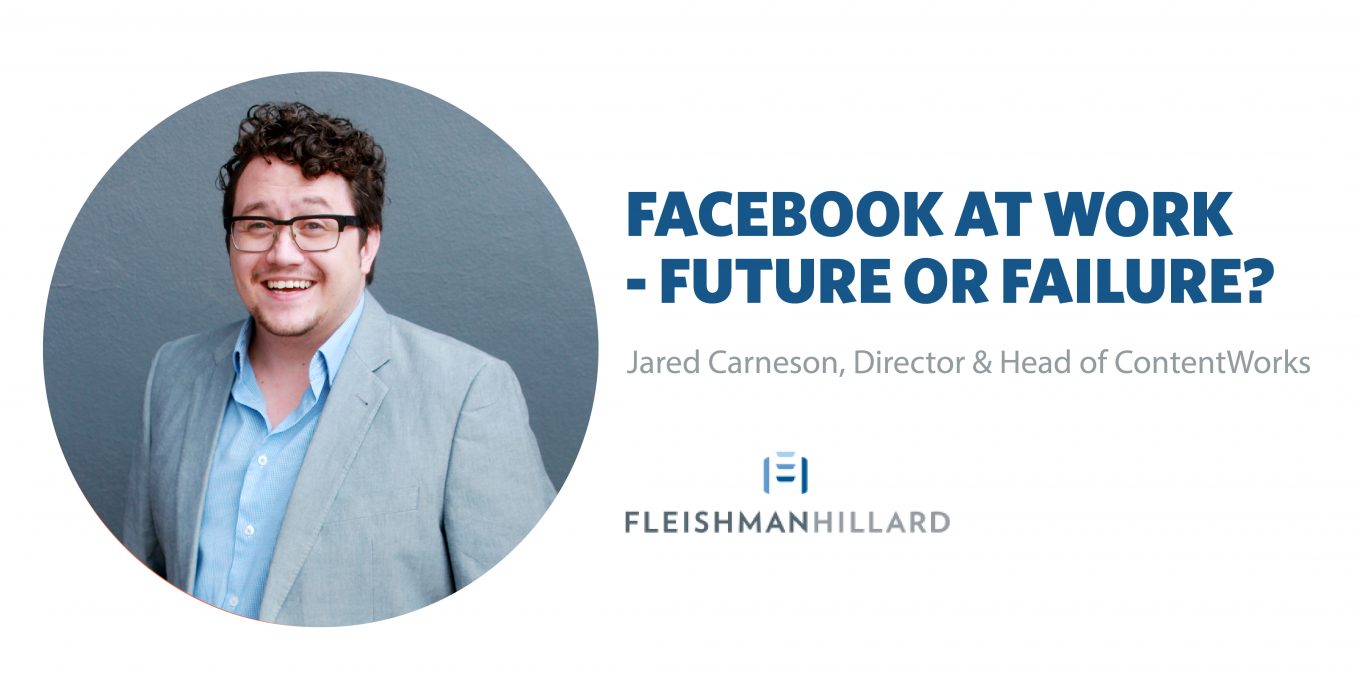Facebook at Work - future or failure?
Social media driven employee advocacy is not new. It makes sense, it’s necessary and effective. A company’s biggest advocates sit within the organisation, tools like Sociabble and Everyone Social provide an effective service where company sanctioned content is curated and presented to employees to consume and share – tools of this nature fulfil in part an internal communications role with the added benefit of external advocacy.
It is hardly a surprise that the likes of LinkedIn recently bolstered its offering with employee advocacy functionality through their LinkedIn Elevate. One can assume that with Microsoft’s purchase of LinkedIn, ecosystem integration and productivity functionality are not far behind on the development road map but they may be late to the market.
Facebook have now entered the fray with “Facebook at work”, which seems to be more than just an employee advocacy platform. Its functionality seems deeply entrenched in productivity with work chat, groups and event functionality. Functionality native and familiar to Facebook platform but with new interesting applications in a business context.
This new platform will certainly have interesting implications for bolstering Facebook advertising targeting parameters, for some time business have preferred LinkedIn targeting given the nature of its business related targeting. This may very well be the step Facebook needs to level the playing field.
It goes without saying that adoption of the platform will dictate its success, but it has some interesting barriers-to-entry to overcome.
1. Separation of personal and work life. Traditionally, Facebook is a platform that employees like to use exclusively for personal use. Although it has been stated by Facebook that an employee’s Facebook work account will remain separate from their personal Facebook account, this is going to be a barrier to entry for employee adoption.
2. A related barrier is a company’s ability to dictate social media compliance from employees. Although companies can dictate policy where an employee’s behavior could be seen as a reputational risk to the organisation, asking an employee to join a work related Facebook initiative may go against the unsaid social media mores of separation.
3. Questionable protection of sensitive information. Businesses in any industry (especially the service industry) risk exposure not only of their own confidential information but of their clients’ confidential information as well. There will certainly be concern around data security, given Facebook’s history with data leaks.
4. Data privacy – Facebook has for some time been at the centre of the data privacy debate. If you had to aggregate the data of company communications, what would that data tell you about your business? With Facebook at Work in place, how will they use that data? Perhaps even more importantly, if someone with a more sinister agenda is able to get their hands on it, what will they do?
This is certainly a monumental step for the platform into an area where its ubiquity is undeniable. Facebook, like Google, will be everywhere, if they are able to overcome what seems to be a goliath set of barriers-to-entry.
What are the chances of your company adopting “Facebook at Work”?
Written By: Jared Carneson, Director and Head of ContentWorks

Find Out More
-
The metaverse – Is it important for your business?
June 2, 2022
-
First Year At A Job And It Had To Be 2020!
June 11, 2021
-
PR trends accelerated by the COVID-19 pandemic
February 19, 2021
